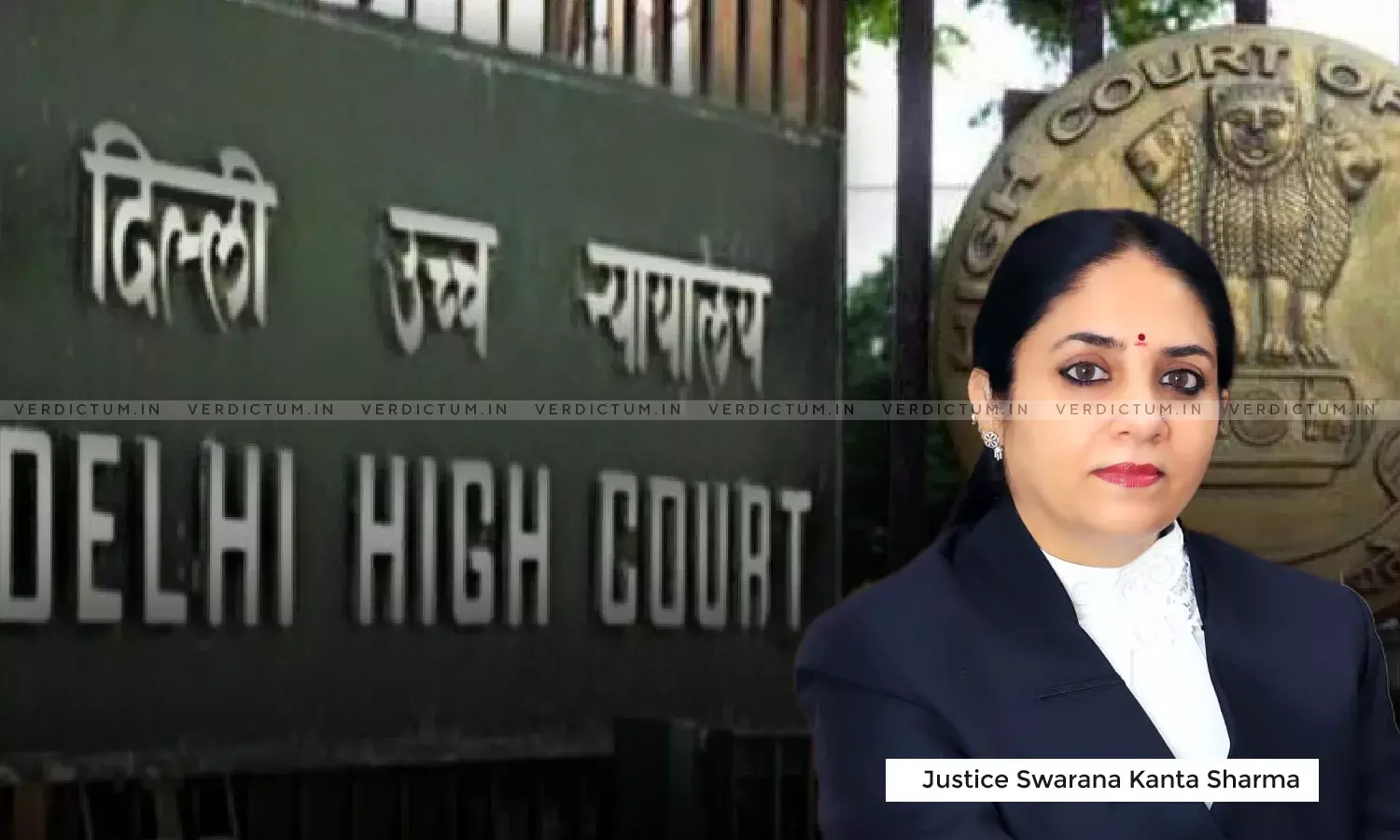Retweeting Defamatory Content Can Also Be Offence U/S 499 IPC: Delhi HC Refuses To Quash Defamation Case Against CM Arvind Kejriwal

Justice Swarana Kanta Sharma, Delhi High Court
The Delhi High Court has observed that retweeting defamatory content can also attract the offence of defamation under Section 499 of the Indian Penal Code.
Refusing to quash a criminal defamation case filed against Delhi Chief Minister Arvind Kejriwal for re-tweeting a video titled ‘BJP IT Cell Part 2’, the Bench of Justice Swarana Kanta Sharma observed that, "Needless to say, the large social media following of a Chief Minister of a State undoubtedly implies a wider reach, making any retweet, a form of public endorsement or acknowledgment."
It was further observed that, "the online interactions and engagement on Twitter, which involves publication of defamatory statements and content, and sharing such content with others by retweeting will surely attract liability since it would amount to posting defamatory content as one‟s own by believing it to be true and thus, sharing it with the public at large."
The Court also clarified that, "it is the choice of the complainant, who may decide as to whether the person who retweeted such content had caused him more damage or not, since he had more friends or followers, by sharing a content."
Senior Counsel Manish Vashishth, along with others, appeared for the petitioner, while APP Manoj Pant, along with others, appeared for the respondents.
In this case, Vikas Sankrityan, also known as Vikas Pandey, filed a case against Delhi Chief Minister Arvind Kejriwal regarding alleged defamation.
Pandey claimed to be a supporter of Prime Minister Narendra Modi and the founder of the social media page 'I Support Narendra Modi.' The dispute originated from a video posted by Dhruv Rathee, where he stated that Pandey, purportedly the second-in-command of the BJP IT cell, offered ₹50 lakh to Mahavir Prasad to retract accusations against the party's IT cell for spreading misinformation. Prasad made these allegations in an interview with Rathee.
On May 7, 2018, Rathee uploaded another video, claiming that Prasad was offered money. Kejriwal retweeted this video, which Pandey argued contained false and defamatory accusations against him. He contended that by sharing the video without verifying its authenticity, Kejriwal exposed the allegations to a vast national and international audience.
Kejriwal was summoned by the Additional Chief Metropolitan Magistrate on July 17, 2019. Despite Kejriwal's attempts to quash the summons at the Sessions Court, the court upheld the decision. Kejriwal then approached the High Court challenging both lower court orders and sought to annul the defamation case filed by Pandey.
Kejriwal's defense argued that there was no evidence of an intention to harm Pandey's reputation, and thus, defamation was not established. The Aam Aadmi Party (AAP) National Convenor asserted Pandey's selective targeting of Kejriwal demonstrated malice, as he did not pursue action against the original author or others who engaged with the video.
The Court observed that while there may have been an absence of malicious intent in the act of retweeting, the responsibility that accompanies the petitioner's political and social standing needed to be considered. With that background, it was observed that, "When a political person of such standing or a public figure or a social influencer, posts some content on his social media account, it can be reasonably believed by the Court while adjudicating such cases, at the initial stage of a case where summoning is in question, that he did understand the repercussions and implications of posting such content and the corresponding harm it can cause to the person aggrieved."
It was also clarified that the original author of the alleged defamatory content will also be liable for any action if a complaint is filed against him.
Appearances:
Petitioner: Senior Advocate Manish Vashishth, Counsels Karan Sharma, Rishabh Sharma, Vedanth Vashishth, Mohd. Irshad, Harshita Nathrani
Respondents: APP Manoj Pant, Counsels Raghav Awasthi, Kunal Tiwari, Mukesh Sharma
Cause Title: Arvind Kejriwal vs State & Anr.
Click here to read/download the Judgment

